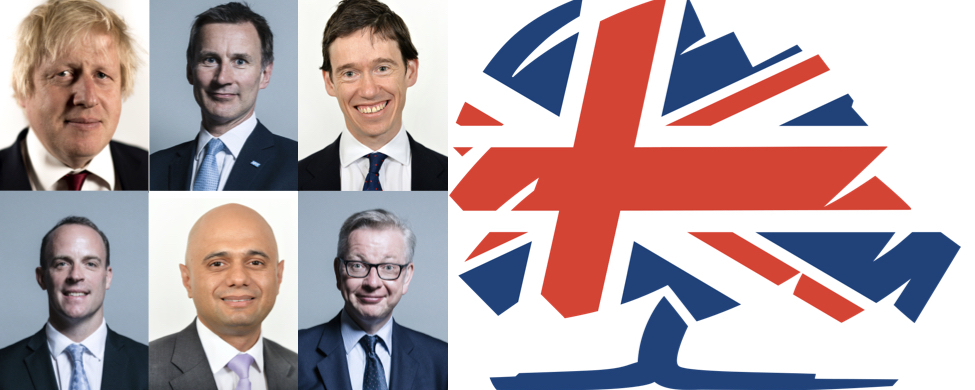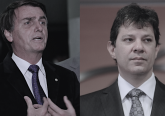Revelations about Michael Gove’s past cocaine use have redefined the Tory leadership contest. Despite the ongoing Brexit process, growing economic uncertainty, and the Conservative’s historic defeat in the recent European elections, the debate has been dominated by illegal drug use. Seven of the ten candidates have admitted taking cannabis, cocaine, and even opium – though frontrunner Boris Johnson has stayed conspicuously quiet in the light of past statements. Even Theresa May has faced questions about her history with drugs.
The problem is not that politicians are talking about drugs, but what they are talking about. Drugs are an important issue, and any future Prime Minister should have a thought-out, evidence-based and proactive stance on drugs – including on issues like safe injection sites, drug trafficking, and medicinal cannabis. While the media focuses on who has taken what drug, there is no attention on candidates’ drug policy proposals. The debate is consumed by the reputational effect of drugs, rather than what the next Prime Minister wants do about them.
Of course, rehashing the past use of drugs might be a good way to squash the high hopes of rival contenders for the Tory leadership, as they need the support of a mostly older, traditional Conservative party membership. Even a high-ranking Conservative aides note that the Tory rank and file are socially conservative, and “it is not the norm for them to see people taking cocaine at parties and that kind of thing.” In this context, Gove’s admission is more problematic, and might tank his campaign. Thus, leaking it to a journalist writing a biography about Gove was a politically savvy move by his distractors and competitors.
Yet, while it might represent good politics, it also shines a light on the bad of British drug policy. As Caroline Lucas MP (Green) succinctly puts it:
“I couldn’t care less about what a politician did in private 20 years ago. What I can’t stand is the rank hypocrisy of potential prime ministers ‘owning up’ to drug use while backing policies that threaten those using drugs now with prison, and allows criminal gangs to profit.”
Gove’s admission not only evidences a certain hypocrisy in the making of drug laws, but it also highlights the double standard when it comes to their enforcement: someone else may well have faced stiff penalties for the same offense. Studies consistently show that richer, whiter drug users face less policing and sanctioning than minority or poorer drug consumers (Alexander 2013). People of colour are disproportionately criminalized by drug prohibition, despite no evidence that they consume more drugs. The costs and consequences of both drugs and their prohibition fall overwhelmingly on the poorest and most vulnerable (Stevens 2011).
This hypocrisy surfacing in the Tory leadership race has long been characteristic of drug policy. Alarm about substances has ebbed and flowed with perceptions of who are their principal consumers (Davenport-Hines 2001). For instance, mandatory minimum sentencing laws in the US have required multiple-fold longer prison terms for drugs used mostly by the rich, like cocaine, against those mostly used by the poor, including crack cocaine (Reinarman and Levine 1997). Yet double standards not only apply to those who use currently illicit substances but also to substances themselves.
These confessions about past drug use highlights different approaches to different drugs. Cocaine seems to cross a line, whereas cannabis passes as unremarkable. Boris Johnson’s past statements are quite telling:
“There was a period before university when I had quite a few [cannabis joints]. It was jolly nice.” and “I think I was once given cocaine but I sneezed and so it did not go up my nose.”
This denial of not really having consumed the substance is remarkably similar to Bill Clinton’s infamous line that he had smoked but “did not inhale” marijuana. There seems reason to deny having consumed cocaine, but not cannabis. That Boris Johnson applies this tactic only to cocaine suggests an increasing “normalization” of cannabis.
The differential treatment of cocaine and cannabis might stem from their differing legal status. While cocaine is by UK law a Class A drug, cannabis is Class B and there are differences in the levels of harm they can cause (Nutt 2012). Yet, they also differ strongly in how socially accepted they are. Cannabis is widely considered the most “normalized” illegal substance (Wibberley and Price 2000; Manning 2007; Erickson and Hathaway 2010). Here, “normalization” refers to the “growing cultural accommodation, social acceptance, or tolerance of drug use by both drug users and the wider society” (Blackman and Measham 2014:230). The current drug debate triggered by the Tory leadership contest suggests that cannabis might have also been politically normalized. While Gove’s admission of cocaine consumption and Rory Stewart’s acknowledgement of smoking opium at a wedding generated headlines, past cannabis use does not seem to raise eyebrows.
Already, the furore surrounding these revelations of past drug use seems to be dying down; the political ramifications of past drug use does not seem to have dampened the chances of Gove, Johnson, or others. Drugs had a surprising and fleeting and moment in the spotlight, but the debate has not been substantive or about future drug policies, but rather about who consumed what substance in the past. This is unfortunate because prior drug use is arguably much ado nothing, but there is much to do regarding drug policy. Going beyond scoring political points in the Tory leadership contest, a more serious debate about the good, the bad and the ugly of British drug policies is urgently needed.
Alexander, Michelle. 2013. The New Jim Crow. The New Press.
Blackman, Shane, and Fiona Measham. 2014. “Drug Normalization.” In Encyclopedia of Social Deviance, eds. Craig Forsyth and Heith Copes. SAGE.
Davenport-Hines, Richard. 2001. The Pursuit of Oblivion: A Global History of Narcotics. W.W. Norton & Company.
Erickson, Patricia G, and Andrew D Hathaway. 2010. “Normalization and Harm Reduction: Research Avenues and Policy Agendas.” International Journal of Drug Policy 21(2): 137–39.
Manning, Paul. 2007. Drugs and Popular Culture. Routledge.
Nutt, David. 2012. Drugs – Without the Hot Air. Uit Cambridge Limited.
Stevens, Alex. 2011. Drugs, Crime and Public Health. Routledge.
Reinarman, Craig, and Harry Levine. 1997. Crack in America: Demon Drugs and Social Justice. University of California Press.
Wibberley, Christopher, and Jason F Price. 2000. “Young People’s Drug Use: Facts and Feelings – Implications for the Normalization Debate.” Drugs: Education, Prevention and Policy 7(2): 147–62.





